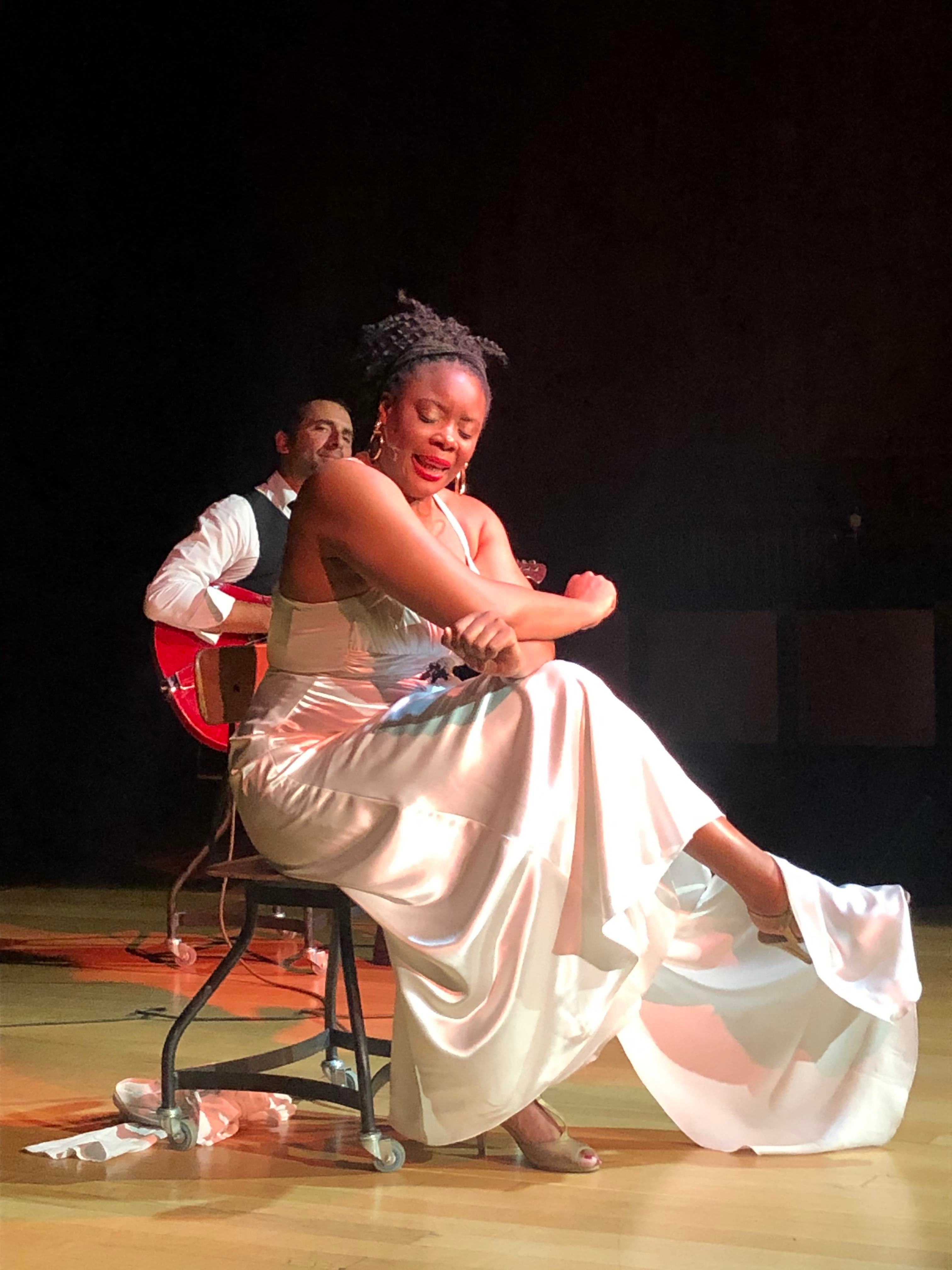⭐⭐⭐
A mixture of spoken word, storytelling and jazz/soul, A Portrait of Ludmilla as Nina Simone is an uplifting but candid account of Simone’s life and legacy.
Ludmila Dabo retells the story of Nina’s early life and the brutality of her treatment by various partners, and these challenging references offer some glimpses into the inner world of Simone and perhaps a window into the meaning of some of her most tender lyrics. The play explores the meaning and purpose of her more overtly political songs, and chronicles her life alongside key moments in the civil rights movement, giving context and meaning to her work. By giving her political voice space to breathe the audience is taken on a journey of understanding and appreciation of the scale of systemic injustice faced by the black community.
The backstory of ‘Mississippi Godamn’, a song she wrote expressing her outrage at the senseless murder of black church goers in Alabama by white supremacists, is as timely as it ever was. ‘Young, Gifted and Black’, an ode to a brighter future for black young people, asserts the importance of giving opportunities to young black people, a theme which the play also explores as a vehicle to reverse the historic injustice and discrimination faced by the Black community.

On meeting Martin Luther King she told him “I’m not down with non-violence”, because of what she witnessed and experienced. She demanded a social revolution to free her black brothers and sisters from the oppression they faced by whatever means necessary.
When Simone invited her parents to sit at the front of a recital in New York, and white people kept asking her parents to move for them, they obliged. Nina Simone refused to sing unless they were allowed to sit where they had planned. Ludmilla Dabo shares painful personal anecdotes of the racism she has faced in her own life, and discusses the importance of undoing the impact of discrimination by offering opportunities to young Black people.
This urgent and important message really hits home and the play leaves you feeling better educated, better informed and more aware of the black community’s struggle for equality within an important historical context. This is ultimately one of the most important legacies of Nina Simone, and this production carries her spirit and political message to new audiences.
C. Hourigan Rae